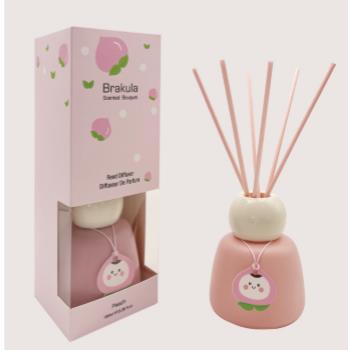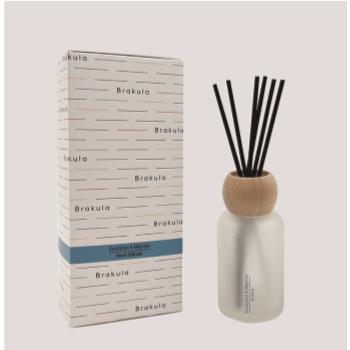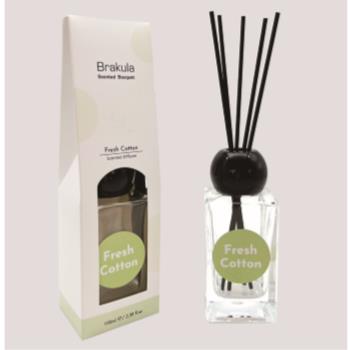Aromatherapy: Benefits, Uses, and Safe Practices
Discover the world of aromatherapy, where the soothing scents of essential oils contrast with the hustle and bustle of everyday life. Dive into a realm where fragrances like lavender, peppermint, and eucalyptus can transport you to a place of relaxation and rejuvenation. Unwind as these essential oils work their magic on your mind and body, offering a holistic approach to well-being. Learn how aromatherapy can enhance your mood, reduce stress, and promote better sleep, all through the power of scent. Embrace the therapeutic benefits that these aromatic oils have to offer and elevate your self-care routine to new heights.

Key Takeaways
Incorporate aromatherapy into your daily routine: Utilize essential oils in diffusers, baths, or massages to experience the benefits of aromatherapy in your everyday life.
Prioritize safety when using essential oils: Dilute essential oils properly, perform patch tests, and consult with a healthcare professional, especially if you have allergies or sensitivities.
Select high-quality essential oils: Research reputable brands, check for purity certifications, and ensure the oils are sourced ethically to maximize the effectiveness of aromatherapy.
Be mindful of potential allergies: Understand common allergens in essential oils, conduct allergy tests before widespread use, and seek alternatives if you experience adverse reactions.
Enhance your well-being with aromatherapy: Explore how aromatherapy can improve sleep quality, reduce stress levels, boost mood, and promote relaxation for a holistic approach to wellness.
Experiment with different blends and applications: Customize your aromatherapy experience by blending oils for specific purposes like relaxation, energy boost, or focus enhancement.
What is Aromatherapy
Ancient Roots
Aromatherapy traces back to ancient civilizations like Egypt, where essential oils were used for rituals and medicinal purposes. In China, aromatic plants were burned for healing and spiritual practices.
Essential oils have been valued throughout history for their therapeutic properties, with references found in Greek, Roman, and Indian texts. The term "aromatherapy" was coined by a French chemist in the early 20th century.
Impact on Brain and Emotions
Essential oils are known to affect the limbic system, the part of the brain that controls emotions and memories. When inhaled, molecules from essential oils travel to the brain and influence mood and emotional responses.
Certain scents like lavender can promote relaxation and reduce stress, while citrus scents like lemon can uplift mood and increase alertness. The olfactory system plays a crucial role in how essential oils impact our emotions and overall well-being.
Methods of Using Essential Oils
Inhalation: Directly inhaling essential oils through diffusers or steam inhalation can provide quick relief for respiratory issues or emotional support.
Topical Application: Diluting essential oils with carrier oils and applying them to the skin can address various skin conditions or promote relaxation through massage.
Internal Consumption: Some essential oils can be consumed orally under the guidance of a qualified practitioner for specific health benefits.
Benefits of Aromatherapy
Holistic Aromatherapy
Holistic aromatherapy embraces the idea of treating the mind, body, and spirit as a whole entity. It focuses on creating balance and harmony within oneself through the use of essential oils.
Anxiolytic Aromatherapy
Anxiolytic aromatherapy aims to reduce anxiety and promote relaxation. Essential oils like lavender and chamomile are commonly used for their calming effects.
Policy Aromatherapy Oils
Policy aromatherapy oils refer to the regulations and guidelines surrounding the production, distribution, and use of essential oils. These policies ensure quality and safety standards are met.
Aroma Compounds
Aroma compounds are the volatile molecules found in essential oils that give them their characteristic scents. These essential oil compounds play a crucial role in aromatherapy's therapeutic effects.
Benefits of Aromatherapy
Aids in reducing stress and anxiety levels.
Improves sleep quality and promotes relaxation.
Enhances mood and uplifts spirits.
Alleviates symptoms of headaches and migraines.
Boosts cognitive function and concentration.
Mixed Results of Human Clinical Trials
Human clinical trials have shown mixed results regarding the effectiveness of essential oils in treating various conditions. While some studies support the benefits of essential oils, others suggest inconclusive evidence.
How Aromatherapy Enhances Well-being
Stress Relief
Aromatherapy can reduce stress by inhaling essential oils like lavender or chamomile, which have calming properties. These essential oil scents can help lower cortisol levels and promote relaxation.
Aromatherapy massages using oils like ylang-ylang or bergamot can also aid in stress relief. The gentle strokes combined with the soothing scents create a relaxing experience, easing tension in the body.
Improved Sleep Quality
Using aromatherapy before bedtime can enhance sleep quality. Essential oils like lavender or cedarwood promote relaxation and help in falling asleep faster. Diffusing these oils in the bedroom can create a calming atmosphere conducive to restful sleep.
Inhaling these scents triggers the brain to release neurotransmitters that induce sleep, leading to a more restorative night's rest. This natural approach can be particularly beneficial for those struggling with insomnia.
Boosted Mood
Essential oils used in aromatherapy, such as citrus scents like lemon or orange, can help uplift mood and combat feelings of depression. Inhaling these invigorating essential oil scents can stimulate the brain's limbic system, which plays a role in emotions and memories.
By incorporating aromatherapy into daily routines, individuals can experience an improved outlook on life and a greater sense of well-being. The fresh, uplifting scents can provide a natural mood boost throughout the day.
Enhanced Cognitive Function
Certain essential oils in aromatherapy, such as rosemary or peppermint, are known for their ability to enhance cognitive function. Inhaling these scents can improve focus, concentration, and memory retention.
Studies have shown that aromatherapy can have a positive impact on cognitive tasks, making it a valuable tool for increasing productivity and mental clarity. Incorporating these scents into workspaces or study areas can promote better cognitive performance.
Safe Usage of Essential Oils
Quality Importance
When using essential oils, always prioritize quality to ensure effectiveness and safety. Low-quality oils may contain impurities that can cause skin irritation or adverse reactions.
High-quality essential oils are sourced from reputable suppliers, ensuring purity and potency. Look for oils that are stored properly in dark glass bottles to maintain their integrity and effectiveness.
Risks of Ingestion
Ingesting essential oils can be risky and should be avoided without proper guidance. Some oils are toxic when consumed and can lead to serious health issues such as liver damage or digestive problems.
Even though some essential oils are safe for ingestion, it is crucial to consult a qualified aromatherapist or healthcare professional before consuming them. Ingesting essential oils without proper knowledge can have harmful consequences on your health.
Safe Methods
Utilize aromatherapy accessories like diffusers to enjoy the benefits of essential oils safely. Diffusers disperse the oils into the air, allowing you to inhale them without direct contact with the skin.
Another safe method is using body oils. Mix a few drops of essential oil with a carrier oil like coconut or almond oil before applying it to the skin. This dilution reduces the risk of skin irritation while still providing the therapeutic benefits of the essential oil.
Pros and Cons:
Pros: High-quality essential oils offer potent therapeutic benefits.
Cons: Ingesting essential oils without guidance can lead to adverse health effects.
Allergies and Essential Oils
Potential Reactions
Allergic reactions to essential oils, such as citrus oils, lavender oil, and tea tree oil, are possible. These reactions can manifest as skin irritation, redness, or itching.
When using essential oils, it's crucial to be aware of the potential for bad reactions. Some individuals may experience headaches or respiratory issues when exposed to certain fragrances.
Dilution and Prevention
To prevent adverse skin reactions, it is recommended to dilute pure essential oils in carrier oils. This helps reduce the likelihood of skin irritation or allergic responses.
Citrus peel oils are known for their refreshing scents, but they can also cause skin sensitivity in some individuals. Diluting these oils before use can minimize the risk of adverse reactions.
Identifying Symptoms
If you experience any symptoms like redness, itching, or swelling after using essential oils, it could indicate an allergic reaction. It's essential to stop using the oil immediately and seek medical advice if symptoms persist.
Certain conditions, such as asthma or eczema, may increase the risk of allergic reactions to essential oils. Individuals with these conditions should exercise caution when using fragrances.
Managing Allergies
Managing allergies related to essential oils involves identifying the specific oil that triggers a reaction. Keeping a journal of your reactions can help pinpoint the culprit and avoid future exposure.
In cases of severe allergic reactions, such as difficulty breathing or chest tightness, seek immediate medical attention. It's important to communicate your reactions to healthcare providers for proper diagnosis and treatment.
Finding Quality Essential Oils
Grading System
Essential oils lack a standardized grading system in the U.S., leading to variations in quality among brands. Consumers may struggle to differentiate between high-quality and low-quality oils.
When purchasing essential oils, it's crucial to look for third-party testing and certifications to ensure purity and potency. Without a grading system, relying on reputable brands with transparent sourcing practices becomes essential.
Marketing Tactics
Terms like "therapeutic grade" are commonly used in marketing essential oils, but they lack regulatory oversight. Companies often use these terms as marketing ploys to attract customers, despite the absence of industry standards.
Consumers should be cautious when encountering terms like "natural" or "pure," as they do not guarantee the quality of the essential oil. Instead, focus on brands that provide detailed information about their sourcing, extraction methods, and testing procedures.
Practical Tips
To ensure you are purchasing pure essential oils, consider buying from reputable suppliers known for their commitment to quality. Look for oils that are 100% pure and free from additives or synthetic ingredients.
When shopping for essential oils, check for certifications such as USDA organic or Ecocert, which indicate that the oils meet specific quality standards. Conducting a smell test can help identify any artificial fragrances or dilutions in the oil.
Seek third-party testing and certifications for purity
Be cautious of marketing terms like "therapeutic grade"
Purchase from reputable suppliers known for quality commitment
Aromatherapy in Daily Life
Self-Care
Incorporate aromatherapy practice into your daily routine for a holistic approach to well-being. Start by adding a few drops of aromatherapy oils to your bath for a soothing and rejuvenating experience. Consider using lavender aromatherapy for its calming properties, promoting relaxation after a long day.
Embrace the benefits of topical aromatherapy by creating your own aromatherapy spray. Mix water with a few drops of your favorite essential oil in a spray bottle for an instant mood boost or to freshen up your living space. This simple DIY project allows you to enjoy the therapeutic effects of aromatherapy throughout the day.
Stress Relief
Integrate aromatherapy treatment into your daily rituals to combat stress and anxiety effectively. Create a calming environment by diffusing aromatherapy products like chamomile or eucalyptus essential oils. The gentle aroma will help alleviate tension and promote relaxation, fostering a sense of tranquility in your home.
Engage in a relaxing aromatherapy massage using diluted essential oils to unwind and release built-up tension in your muscles. Combine soothing strokes with the aromatic benefits of lavender or lavender products to enhance the overall experience. The therapeutic touch paired with the calming scent creates a blissful escape from daily stressors.
Household Wellness
Explore the versatile applications of aromatherapy services within your household for improved well-being. Infuse your cleaning routine with the natural power of essential oils by adding them to homemade cleaning solutions. Lemon, tea tree, or peppermint oils not only disinfect surfaces but also leave behind a refreshing scent, elevating your living space.
Enhance your bedtime routine with integrative medicine practices such as diffusing lavender aromatherapy before sleep. The soothing aroma promotes restful sleep and helps you unwind after a busy day. By incorporating aromatherapy into various aspects of your daily life, you can create a harmonious environment that nurtures both body and mind.
Final Remarks
Incorporating aromatherapy into your daily routine can significantly enhance your overall well-being. By understanding the benefits of essential oils, practicing safe usage, and being mindful of allergies, you can harness the power of aromatherapy to promote relaxation, reduce stress, and improve your mental clarity. Remember to source quality essential oils to maximize the therapeutic effects and ensure a positive experience.
Take the first step today by integrating aromatherapy into your life. Whether it's through diffusing calming scents at home, adding essential oils to your skincare routine, or creating a soothing atmosphere in your workspace, the benefits of aromatherapy are within reach. Embrace this natural approach to wellness and discover the transformative impact it can have on your mind, body, and spirit.
Frequently Asked Questions
What is aromatherapy?
Aromatherapy is a holistic healing treatment that uses natural plant extracts to promote health and well-being. These essential oils can be inhaled or applied to the skin, providing various therapeutic benefits.
How can aromatherapy enhance well-being?
Aromatherapy can help reduce stress, improve sleep quality, boost mood, alleviate headaches, and enhance relaxation. The use of essential oils in aromatherapy can positively impact both physical and emotional well-being.
Is aromatherapy safe for everyone?
While generally safe, some individuals may experience allergic reactions to certain essential oils. It's crucial to perform a patch test before using new oils and consult with a healthcare professional, especially if you are pregnant, nursing, or have underlying health conditions.
Where can I find quality essential oils for aromatherapy?
Look for reputable brands that offer pure, organic essential oils. Specialty stores, online retailers, and certified aromatherapists are good sources. Always check for third-party testing, organic certifications, and customer reviews to ensure quality and authenticity.
How can I incorporate aromatherapy into my daily life?
You can incorporate aromatherapy into your daily routine by using diffusers, adding a few drops of essential oils to bathwater or massage oils, creating DIY room sprays or inhalers, or simply inhaling directly from the bottle. Experiment with different scents to find what works best for you.



